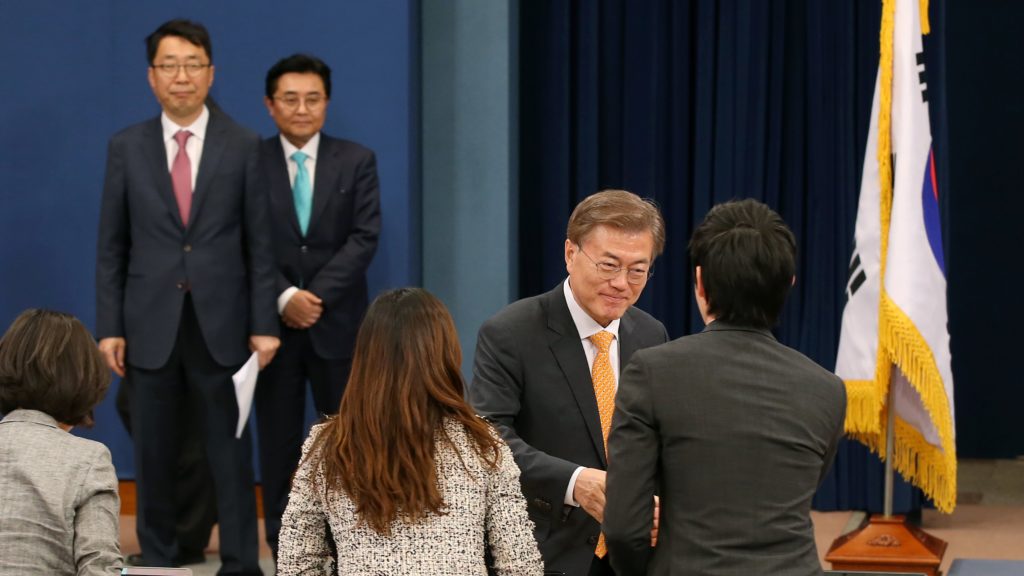The Peninsula
President Moon’s Commitment to Young People in South Korea

By Donald Manzullo
Part of President Moon’s plans for re-invigorating his country’s economy is to address the huge problem of unemployment and underemployment, especially among Korea’s youth.
Over 11 percent of those between 15 and 29 are not employed, a figure that is almost three times the rate of the jobless. Koreans have long had a commitment to higher education, resulting in 80% of high school graduates going on to college. Each year, about 500,000 young people go into the job market, with 60% of them holding college degrees, but there are permanent jobs for only about 200,000, resulting in highly educated young people taking full and part time jobs at the low end of the wage scale. With chebols actually hiring less, this annual problem is even more profound.
As a candidate, President Moon received enormous support from voters within this age group (the voting age is 19 in Korea), young people trying to find meaningful jobs in an increasingly difficult situation. In June, President Moon said, “If we leave our current jobless situation as is, there are concerns it may later return to us as an economic crisis equaling a national catastrophe,” in asking for an extra budget to up social welfare subsidies and create more jobs.
Moon’s goal is to add over 800,000 public sector jobs, pass a stimulus bill and increase the minimum wage. “We have to shut down the cycle of growth without employment. We need an economic paradigm shift from the idea that jobs are created as the result of growth to the idea that growth occurs when jobs increase,’” he said, Forbes citing local press. “Moon believes that as more jobs are created, household income will increase, which would spur consumption and raise company earnings — eventually creating more jobs. It stands in contrast to his two predecessors who argued that companies must grow first for jobs to be created.”
Moon’s challenges are daunting, but he’s reaching in several directions, especially in light of the unachieved goals by his two predecessors in office.
He’s created a new Ministery of SME’s and Start Ups, and nominated former Democratic Assemblyman Hong Jong-haak to be its first head. Hong was the former policy director at the Citizens Coalition for Economic Justice (CCEJ), a Korean public policy organization founded in 1989 that is involved in all types of grass roots issues covering subjects like banking, local autonomy, finance, taxation, and welfare. The emphasis of the organization is “ordinary citizens” as leaders, trying to find alternatives in a social justice setting. President Moon is entrusting Dr. Hong to help create 160,000 new jobs through executing his policy standards for re-invigorating SME’s and new start ups. Elainae Ramirez, a contributor to Forbes says Moon has five pillars in this aggressive agenda: easier and more funding for start ups, acknowledging failing in business is not the end of the world, encouraging large companies to help smaller companies and making it easier to exit as a small business into a larger enterprise,
President Moon’s challenges are enormous, and his commitment to young people to create a better future in Korea has taken on some very interesting philosophies and paths. He came into office at a difficult time, and we hope his energy continues in succeeding to resolve, at least in part, some of the problems impacting Korea’s youth.
Donald Manzullo is the President and CEO of the Korea Economic Institute of America (KEI). He was a member of the US Congress from 1993-2013 and served as Chairman of the Small Business Committee and Chairman of Foreign Affairs Subcommittee on Asia and the Pacific.
Photo from the Republic of Korea’s photostream on flickr Creative Commons.
